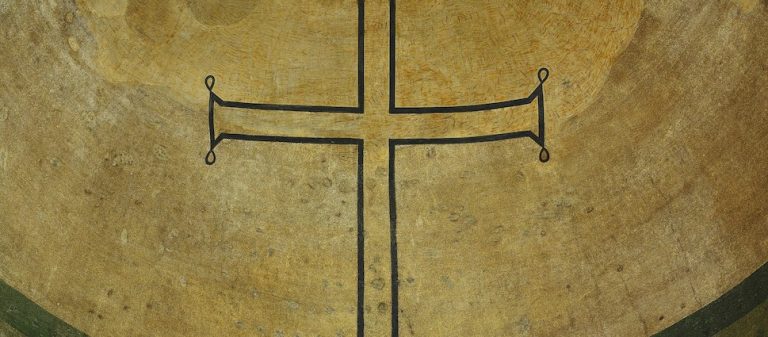The puritan doctrine of union and communion with Christ is not only a biblical doctrine, it is quite beneficial pastorally and theologically. Eventually, I would like to consider some uses of this doctrine, but for now I will focus on its meaning and biblical basis. And in good puritan fashion I will do so by making a number of points.
First, the doctrine of union and communion pertains to actual union or what is often called mystical or vital union. It is possible to speak of a union between Christ and the elect in terms of the decree and the federal headship of Christ. But these senses are quite different from an actual or mystical union and are not under our purview. An actual union with Christ refers to the moment when a sinner is united to Christ at his conversion, or in the words of the Westminster Larger Catechism, in his effectual calling (Q&A 66-67).
Second, union with Christ is a spiritual union that binds the believer to Christ. Ezekiel Hopkins noted that this union “is a high and inscrutable mystery,” as did Edward Reynolds who said that it “is one of ‘those deep things of God,’ which are not discernible without the Spirit.” Nonetheless, we know that it is “close, spiritual and real (1 Cor. 6:17, Hopkins),” and that it is comparable to “a body, consisting of divers members,” to a building, consisting of stones, to “an ‘ingrafture of a branch in a tree,” and to a marriage (Reynolds). Similarly, John Ball described union as being “engraffed into Christ, and made one with him, flesh of his flesh, and bone of his bone, lively members of that body, whereof he is the head (Rom. 11:17; John 15:1; Eph. 5:30).” Furthermore, our union with Christ is comparable to our former relationship with Adam. Reynolds says we are spiritually in and from Christ, the second Adam, even as we were naturally in and from Adam.
Third, union with Christ is by faith. Ball said that we are married to Christ by faith and that “faith is the band whereby we are united unto Christ.” Reynolds stated that the “formal effect of faith” is to unite a person to Christ and give possession of him (Eph. 3:17); and Hopkins noted that it is by faith “that we are made mystically one with Christ; living members in his body; fruitful branches of that heavenly and spiritual vine.” Interestingly, the Westminster Larger Catechism does not specifically mention that union is by faith but simply teaches that it is done in a person’s effectual calling. The Catechism’s definition of effectual calling is broad, however, and it includes both the regenerating work of the Holy Spirit and the sinner’s personal act of faith. It thus allows for one to place union in connection with regeneration or with faith or with both. Since union involves a reciprocal relationship or what Reynolds called a mutual act, wherein “Christ exhibiteth himself unto us, and we adhere and dwell in him,” it is theologically legitimate to do all three. In one place Reynolds said that the formal reason or bond of union is “the Spirit of Christ, by which, as by immortal and abiding seed, we are begotten anew unto Christ.” In another place, he said that faith is the bond of union (“the spiritual joint and ligament, by which Christ and a Christian are coupled,” Gal. 2:20; John 6) “on our part.” Similarly, Rowland Stedman said that union with Christ is a “mutual conjunction,” which involves “two great bonds or ligaments.” The bond on Christ’s part is the Spirit indwelling the believer (Rom. 8:9-10), and the bond on the sinner’s part is faith. When both “great bonds” are in place, Christ and the believer are “conjoyned, and made one together.” Thus, we could say, along with Herman Witsius in his book on a puritan debate that included this very issue, that a sinner is truly and really united to Christ by the Spirit at regeneration and thus before faith, but at faith, a “mutual union” takes place. In other words, Christ by his Spirit embraces the (passive) sinner in regeneration (a real union), and the (active) sinner embraces Christ back by faith (mutual union). The reciprocal nature of union means, therefore, that actual union may be considered from three angles: regeneration, faith, and effectual calling (i.e. regeneration and faith). Yet, since faith is what we do to unite to Christ, marks the completion of our union with him, and is a biblical way of speaking, it is most fitting to say that union with Christ is by faith.
Fourth, communion follows union. Once we are made one with Christ, we share in and partake of the salvation that is found in him. John Ball said that “after Union followeth Communion with him.” Similarly, Reynolds said that from union “doth immediately arise a communion with him in all such good things as he is pleased to communicate.” According to Ball, the fruits and benefits of communion are justification, adoption, and sanctification (see also WLC 69). In another place, he says that we have “communion with him in his death and resurrection, he and all his benefits are truly and verily made ours.”
Two quick observations are worth noting. First, justification and sanctification as well as every other saving benefit are rooted in union and communion with Christ. This means, for example, that union with Christ is necessary for and logically prior to justificaiton. Being joined to Christ by the Spirit through faith is thus foundational to personally experiencing salvation. Echoing the words of John Calvin (Institutes 3:1:1), Reynolds wrote,
Wealth in the mine doth no good at all, till it be severed and appropriated to persons and uses. Water in the fountain is of no service unto me, till it be conveyed thence to mine own cistern. The light of the sun brings no comfort to him, who hath no eyes to enjoy it. So though Christ be a mine, full of excellent and unsearchable riches, – a fountain full of comforts and refreshments,-a sun of righteousness, – a captain and prince of life and salvation; yet till he be made ours, till there be some bond and communion between him and us, we remain poor and miserable, as if this fountain had never been opened, nor this mine discovered.
Second, Christ and his benefits are inseparable. You can’t have one without the other. Christ doesn’t save by going around handing out tickets to heaven. He saves by giving himself. Moreover, you can’t have one benefit and not the others. As Ball said, “he and all his benefits…”
Much more could and should be said about the puritan doctrine of union and communion with Christ, which I hope to do in the next article.

























